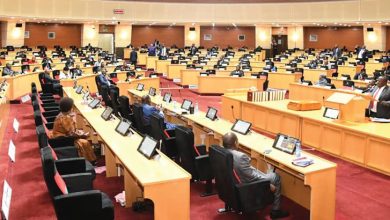Insubordination or sabotage?
Malawians have been dealing with a serious food shortage in the past few weeks, particularly in the Southern Region where some citizens have been forced to consume buffalo beans (Chitedze) to survive. In response, President Lazarus Chakwera issued a directive mandating the Agricultural Development and Marketing Corporation (Admarc) to open all its depots and ensure they are stocked with maize so that people could begin purchasing much-needed food supplies.
Yet, weeks later, disturbing reports indicate that many Admarc depots remain closed or under-stocked, with some depots having not even begun selling maize. Shockingly, in some cases, officers are waiting for a further directive to start selling the maize. The question here is simple: What directive could be higher than the one from the President himself?
This situation is more than just a failure to sell maize—it points to a larger and more troubling pattern of insubordination or, worse, deliberate sabotage. The President’s directive was clear and urgent, given the dire circumstances. The failure of public officers to carry out this order is a glaring demonstration of disconnect between policy and implementation, showing a l a c k o f seriousness and urgency in addressing one of the nation’s most pressing crises.
This is not an isolated incident; it highlights a wider systemic issue within Malawi’s public institutions—a laissez-faire attitude that seems to permeate various levels of government. When citizens are struggling to put food on the table, and public officers fail to respond swiftly and effectively to the President’s instructions, it raises a critical question: Are these public servants loyal to the cause of serving Malawians, or are they deliberately undermining the leadership?
The failure of Admarc to adhere to the President’s directive is not just about the maize crisis; it’s symbolic of a broader issue. Public officers are either unwilling or unable to implement top-level decisions, and this raises serious concerns about accountability within the system. If directives from the highest office can be ignored without consequence, it begs the question: What other areas of governance are being similarly neglected or subverted?
Leaders are tasked with setting the course for the nation, but the execution of these policies falls on the shoulders of public officers. When they fail, the whole country suffers. In this case, the suffering is tangible—Malawians are going hungry. This disregard for the President’s directive should prompt an immediate and decisive response. Without consequences, the culture of negligence and insubordination will only deepen, further eroding the government’s ability to serve its citizens effectively.
Moreover, the maize crisis exposes a failure to anticipate and address the scale of the problem. The government knew food shortages were looming, yet the response was insufficient. The allocation of maize to Admarc depots has been inadequate to meet the high demand. Public officials should have taken the initiative to ensure the president’s directive was implemented swiftly, but instead, they have allowed red tape and inertia to dictate their actions.
What we are witnessing is a failure of leadership at multiple levels. The president’s clear mandate has been disregarded, and no repercussions have followed. This lack of accountability signals to public officers that they can ignore directives without fear of punishment, creating a vicious cycle of inefficiency and negligence.
The maize issue is not just about hunger—it’s a reflection of a dysfunctional system. The public deserves better, and the government must take decisive steps to ensure that directives are followed, that those who fail are held accountable, and that Malawians are put first. If this doesn’t happen, the disconnect between policy and action will continue to widen to the detriment of the entire nation.
It’s time for the government to enforce accountability. In a time of crisis, insubordination or sabotage cannot be tolerated. Leaders must be willing to act decisively, ensuring that public officers remember their ultimate responsibility—to serve the people, not to frustrate them.



